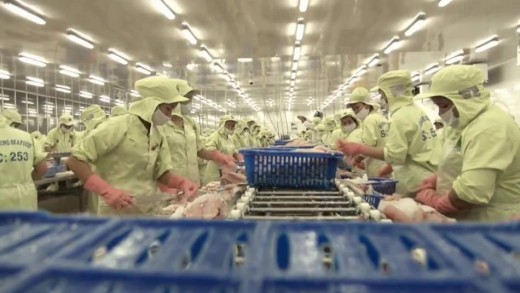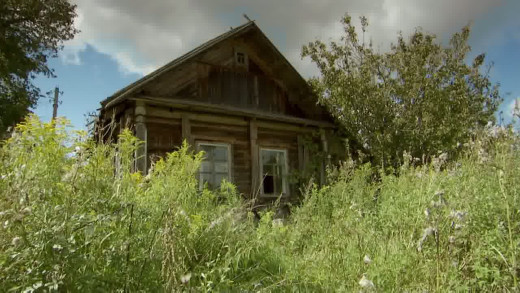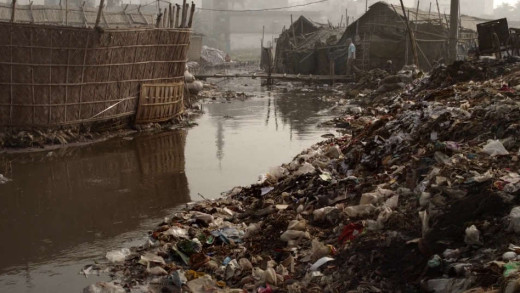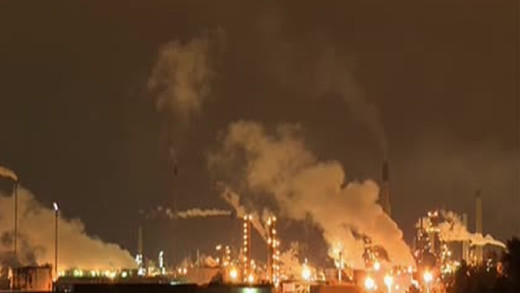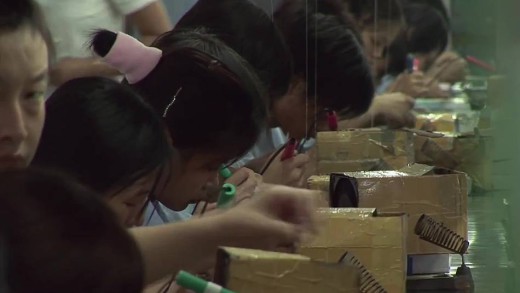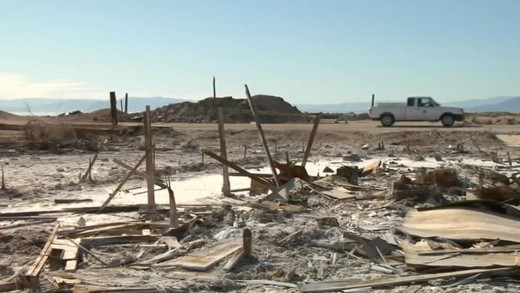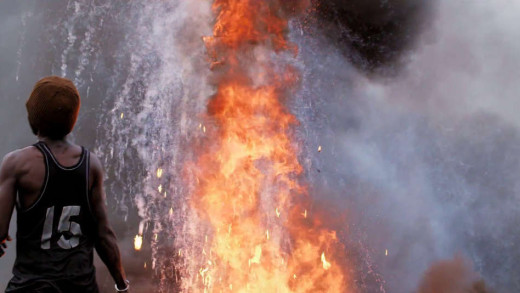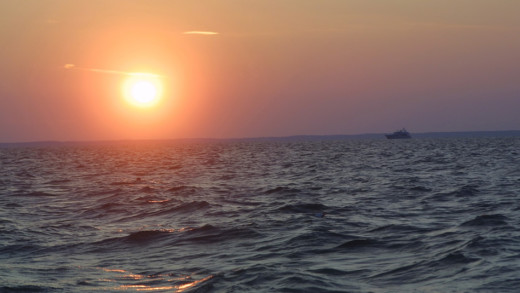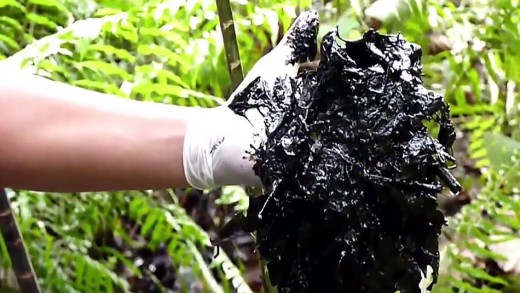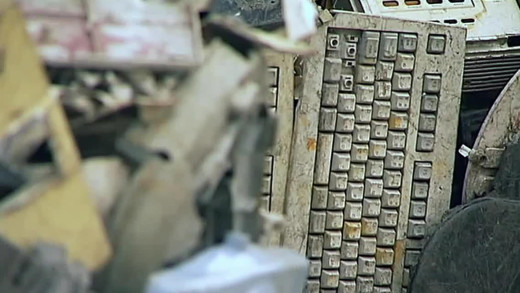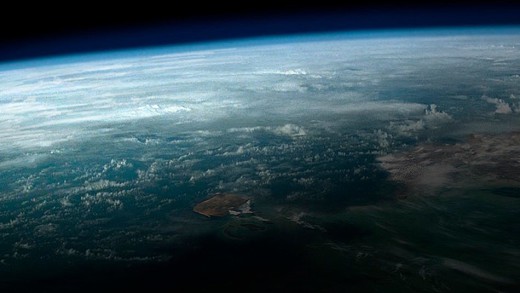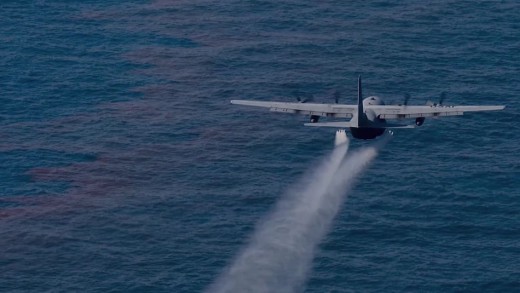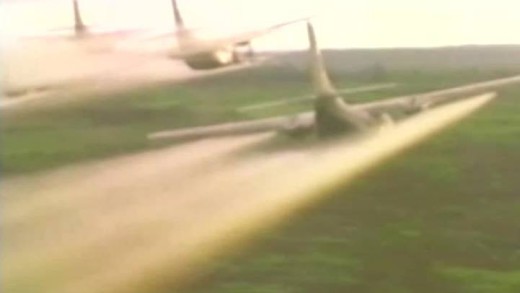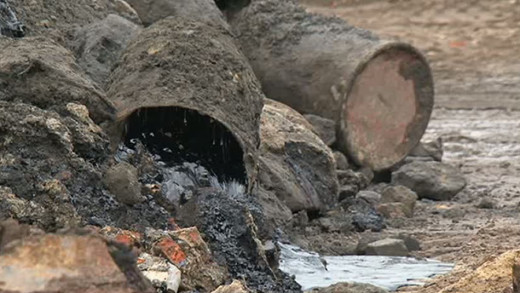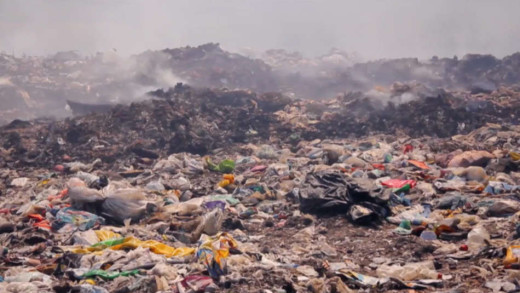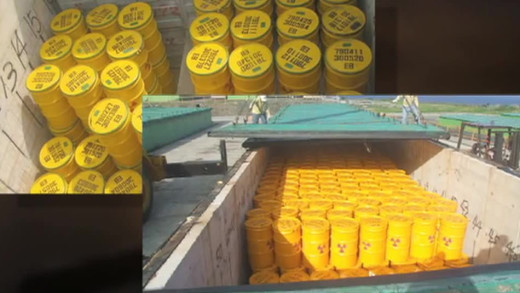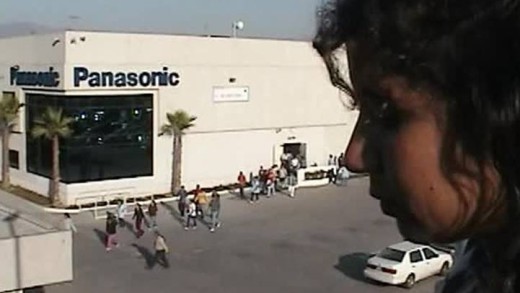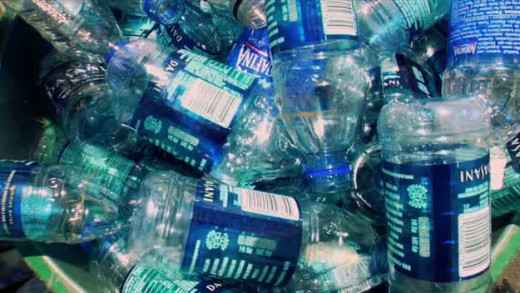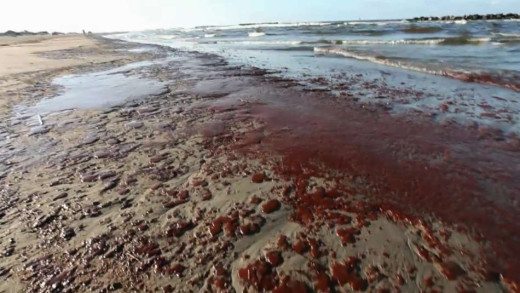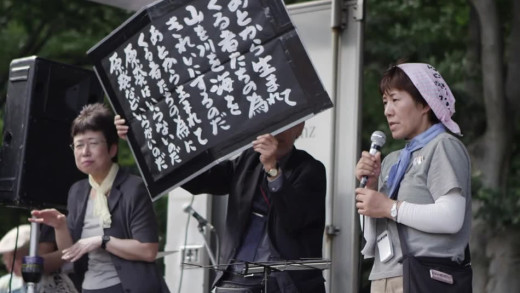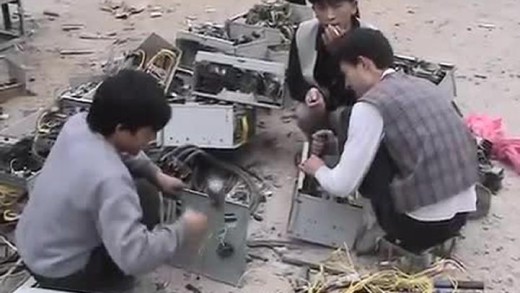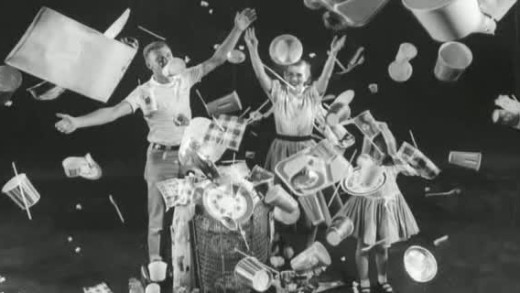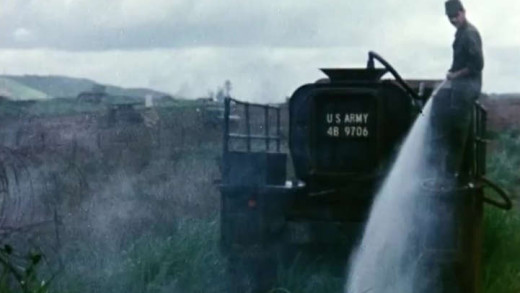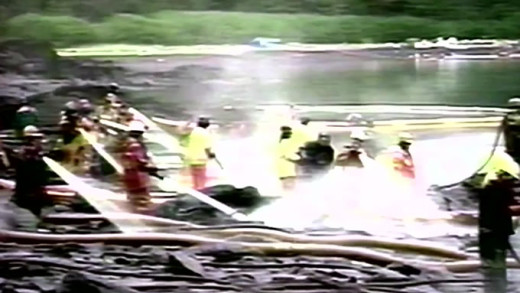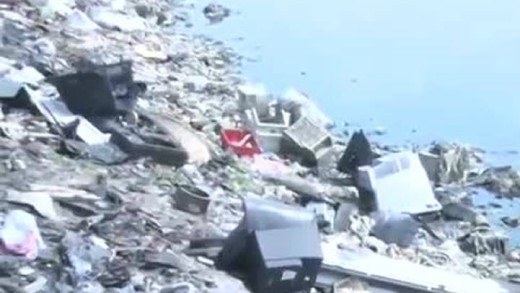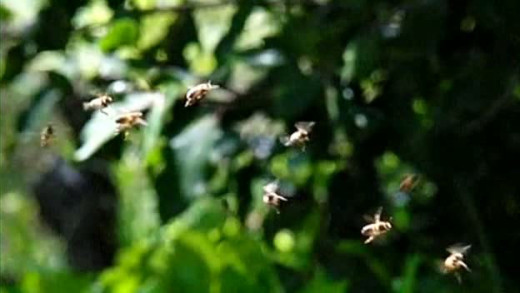In the past 40 years, global consumption of fish has doubled. Having decimated natural fish populations globally, the industrial food system has turned to mass-scale farming practices in order to sustain the unsustainable, supplying huge supermarket chains and commercial food outlets with cheap processed fish products. What do we know about this and these processes? And what of the lives of the fish? What about their health and the health of the waters in which they're taken? Fillet-Oh!-Fish is the result of yet another indictment of the industrial food system, agriculture and factory farming—all of which have egregious implications to the health and well-being of species, and the planet as a whole. We see myriad mixes of pesticides and other chemicals, leading to toxic rivers and streams, the pervasiveness of the industrial food system, with glimpses into working conditions and processing methods, as well as the perniciousness of globalisation, with the world-wide reach of this crazy system that has hijacked a fundamental life-giver: food.
In 1986, a catastrophic nuclear accident occurred at the Chernobyl Nuclear Power Plant in Ukraine. An explosion and fire released large quantities of radioactive contamination into the atmosphere, which spread over much of Western USSR and Europe. Life After Chernobyl uses this event to show how wild nature reacts and survives when the world is suddenly rid of the impacts of industrialisation. Travelling to the site of Chernobyl, animals return, forests regrow, buildings disintegrate into grass -- perhaps saying in a rather horrific way that a nuclear accident is better for the natural world than industrial civilisation...
RiverBlue shows the toxic effects of textile production and jeans manufacturing on some of the world's largest rivers. Travelling from tanneries along rivers in India, to some of the largest jeans manufacturing factories in China, renowned river advocate Mark Angelo guides the viewer through the declining health of waterways around the world.
The Idiot Cycle investigates six major chemical companies—Dow Chemical, BASF, Bayer, Dupont, Astrazeneca and Monsanto—that are not only responsible for producing decades of cancer causing chemicals and pollution all across the globe, but also profit extensively from controlling cancer treatments and the production of drugs for those treatments. The irony is palpable. Also examined is how these very same companies own the most patents on genetically modified foods that have also never been tested for long-term health impacts like cancer. When there's dioxin in every mother's breast-milk, rivers throughout the world that no longer support life, cataclysmic environmental damage from industry and manufacturing—when do we say enough is enough?
Who Pays the Price -- The Human Cost of Electronics is a short film that seeks to humanise the largely hidden and anonymous global labour force that enables the ubiquitous technoculture, documenting the harsh conditions in which electronics are made and how this really impacts those people's lives, and the environment. Toxic chemicals, plastics, and sweat-shop working conditions all contribute to the global machine that disseminates digital technologies, hidden in plain sight. Through direct footage of factory workers, interviews with them and analysis of the conditions, Who Pays the Price asks the question of the viewer, and as a call to action to stop the exploitation and toxification of people and the natural world.
Once advertised as the birthplace of a bright new future for the American Dream, Salton City, California is now crumbling into an apocalyptic landscape of pollution and desolate land. As farmers burn their fields, and the honey bee population dwindles, scum floats down the most polluted river in North America, which carries raw sewage, pesticides and factory waste from Mexico into the once-beautiful Salton Sea. Toxic Imperial Valley travels through these landscapes, meeting the squatters and other occupiers left, in what looks like the end of the world...
Hundreds of thousands of mobile phones, LCD screens, TVs, notebooks, tablets, and computers become useless or quickly "out-of-date" and end up in Ghana every year, where children and adolescents dismantle them for "recycling." Welcome to Sodom profiles the life of those who work in the brutal conditions, handling the world's electronic waste, and what they endure to barely make enough money to survive. Many years before the wasteland, Ghana was a beautiful savanna with greenery and animals, now it's a hell of fire, toxins, acrid smoke, plastic, and pollution, at the behest of the global economy and the technoculture that drives it.
Poisoned Waters investigates some of the root causes of what we see worldwide with ecological collapse, dead-zones and pollution effecting oceans, rivers and watersheds. With a focus on major waterways in the United States such as the Chesapeake Bay and Puget Sound, the film follows the culmination of decades of evidence that today's systemic and growing environmental collapse comes not only from the toxic activities of industry, agriculture and massive suburban development; but also from the permeated satiety of chemicals in prolific consumer products such as face-creams, deodorants, prescription medicines and household cleaners. This is a startling reminder of the compounding threat facing our world and the need to act imperatively.
The oil industry giant Chevron began operating in Ecuador's Amazon rainforest in 1964, and by the time the corporation fled the area in 1992, their toxic footprint had brought about 1,700 times more damage than the infamous Exxon Valdez oil spill in the United States in 1989. Chevron vs. The Amazon visits the scene of this epic and enduring crime, to uncover the acts that have killed the riches of the world's tropical paradise. The Amazon is home to hundreds of thousands of unique species of plants, animals, insects, landscapes, as well as an equally diverse human population—all under severe and continued stress and threat. Chevron dumped 17 billion gallons of crude oil and 19 billions gallons of contaminated waste water into the Amazon. Prior to fleeing, they attempted to hide this by covering the areas with dirt or setting the toxic dumps on fire. This film shows the totality of these crimes, and how the land and its people have suffered from devastating impacts over the ensuing decades, as the first step to holding corporate criminals to account, for justice and the survival of the Amazon and its peoples.
China's factories provide low cost products such as computers and cars to the rest of the world, but the real cost is high with heavy air pollution, contaminated waterways, decimated land, terrible working conditions, widespread cancer and incidences of deaths. China's Dirty Secrets travels across the country to follow workers at factories that assemble computers, then to e-waste dumps, and finally an industrial incinerator burning medical waste, all showing first-hand the extensive environmental impacts of so-called "economic growth."
The Planet is a stylised observational video commentary that brings together an overview of the many global changes set about by industrial civilisation. Viewed through the myriad connections between consumerism and the false notion of a perpetually expanding economy on a finite planet, the film peers across the globe to reveal systemic exploitation; species extinction driven by industrial agriculture, logging, mining, manufacturing, pollution, the age of oil and plastic, etc; climate change; carrying capacity and population growth; while also positing that we—as in you and me—can do something, anything, to stop the destruction.
Did you know that the legal system recognises a corporation as a person? What kind of 'person' is it then? What would happen if it sat down with a psychologist to discuss its behaviour and attitude towards society and the environment? Explored through specific examples, this film shows how and why the modern-day corporation has rapaciously pressed itself into the dominant institution of our time, posing big questions about what must be done if we want a equitable and sustainable world. What must we do when corporations are psychopaths?
Pretty Slick reveals the untold story of BP's coverup following the 2010 Deepwater Horizon oil explosion in the Gulf of Mexico. The explosion is known as one of the largest environmental catastrophes in the history of the United States, but what is not well-known is that BP, along with government approval, used toxic chemicals to sink the oil in the water rather than clean it up, using a controversial chemical dispersant called Corexit. Because of this, it is estimated that approximately 75% of the oil, or over 150 million gallons, is still unaccounted for. When filmmaker James Fox learned of this, he began a three year investigation to find out about the dispersant use and its coverup. Pretty Slick reveals how public safety and environmental health took a backseat to restoring the economy, and along the way exposes the collusion between big oil and the United States government in these happenings.
Corporations On Trial is a five-part series following just some of the many lawsuits being brought against multinational corporations for war crimes, conspiracy, corruption, assassinations, environmental devastation and payments to terrorists. Such serious charges have forced some of the world's largest companies to hire high-profile defence lawyers to protect public relations in cases often brought by plaintiffs who are barely literate. These five films reveal a growing anxiety about the power and influence of big business, as many multinational corporations have annual revenues greater than some countries' national budgets and indeed increasingly hold governments to ransom by their economic power. Around the world, ordinary people are fighting back and asking how many more times their interests should be sacrificed for corporate greed and shareholder profit...
More than three million Vietnamese people still suffer the gruelling effects of chemical weapons used by the United States during the Vietnam War. American militaries doused forests, lands and waterways of Vietnam with the deadly chemicals Agent Orange, White, Blue, Pink, Green and Purple. Agent Orange in particular, which contains dioxin—the most toxic chemical ever known—has disabled countless people and generations of their offspring. This film weaves personal stories together with the stories of American GIs to lead to a great unravelling of the first-hand devastating and lethal effects of Agent Orange and war, generations later.
Barbie, H&M jeans, everyday corn--just some of the products recalled due to controls on the use of dangerous chemicals as a wave of legal cases over toxicity is calling manufacturing of certain products into question. The Toxins Return follows the trail from field worker, to customs, to the high street shopper--how much can we trust all these products?
Trashed sets out to discover the extent and effects of garbage on the natural world. The film travels to beautiful destinations now tainted by pollution, through conversations with scientists, politicians, and people whose health and livelihoods have been fundamentally effected by waste. We see unfettered garbage dumping in Lebanon effecting its own coastline, but also the entire Mediterranean sea; toxic waste mounds set near a school and a future hospital in England; garbage incinerators in Iceland and Japan; the effects of plastic, microplastics, chemical sludge, flame retardants, pesticides, herbicides, dioxins, and other chemicals from waste and their synergistic impacts the world over. Trashed is a call for urgent action to resolve the issue of existing waste, to drastically reduce consumption and output to significantly less harmful levels, while demonstrating how this is already being reached for in many communities around the world.
Just along the fault lines of the Pacific Rim of Fire from Japan, lies Taiwan--another heavily industrialised, modern economy highly reliant on nuclear power. Ninety percent of the world's earthquakes occur along the Rim of Fire, so no wonder there are worries about a fourth nuclear plant being built there. The government of Taiwan is promising to hold a referendum on its future, but if the reactor doesn't go ahead the country's nuclear strategy is in question, along with the $9 billion already spent on the plant. And the state-owned power company, Taipower, would face bankruptcy, leaving no one to manage Taiwan's nuclear waste. The waste currently sits across the water on the tiny Orchid Island, quickly corroding and risking potential disaster for the native Tao inhabitants. As fears grow, can we learn from Fukushima before it's too late?
In Mexico, 'maquiladoras' is a word used to describe the sort of factories that have become commonplace with globalisation—mass assembly and manufacturing plants primarily staffed by women for low wage and long hours in unsafe and toxic conditions. Tijuana has attracted so many such factories that it has gained the nickname Maquilapolis. Delving into the landscape of this, this film asks the question: What is the human price of globalisation? Maquilapolis brings American and Mexican-American filmmakers together with Tijuana factory workers and community organisers to answer that question and tell the story of globalisation through the eyes and voices of the workers themselves. The result is a film to inform and inspire, as each day the workers confront labor violations, environmental devastation and urban chaos...
Tapped shows the hidden affects of the bottled water industry by documenting the impacts to the environment from plastic bottles, pollution from production, right down to the impact on the communities, land and people from which the water is taken...
On April 20th 2010, a massive oil rig exploded in the Gulf of Mexico. It was called the Deepwater Horizon rig, operated by the BP corporation. The resulting fire claimed the lives of eleven workers, while the exploding oil well spewed over 4.2 million barrels of oil into the sea over 82 straight days, killing the ocean and millions of animals. The disaster is considered the worst environmental catastrophe in the history of the United States. Ecocide profiles the disaster through the residents of Grand Isle, the last inhabited barrier island off the coast of Louisiana, United States, who thought they were living in paradise until the BP oil explosion hit their shores. Through the lived experiences of this island community, we see the devastating repercussions of the explosion, several years later, that continue to this day.
Ever since three reactors went into meltdown at the Fukushima Daiichi Nuclear Power Plant in 2011; a broad, disparate, anti-nuclear movement is growing in Japan. Nowhere is that more apparent, perhaps, than in Fukushima prefecture, where a group of local women boldly protest the deafening silence of the Japanese government over the worst nuclear accident of this century. Largely ignored by their own media, these brave women brush aside cultural shyness and share their honest views on the state of the cleanup, the cover-ups, the untruths and the stagnant political climate in today’s Japan...
This short film, put together by activists, documents the extreme proliferation of e-waste throughout Asia. The effects of the waste is catastrophic, as computers and electronics contain some of the most hazardous materials—cadmium, barium, plastics, mercury, lead, Brominated Flame Retardants and dioxins. Working at the nexus of human rights and environment, this film confronts the issues of environmental justice at a macro level, by provoking the need to stop this trade and address the issues. With over 80% of e-waste coming from the United States alone being exported throughout Asia, the problem is only to increase unless things change, especially in the age of planned obsolescence and consumer 'upgrades.'
From styrofoam cups to artificial organs, plastic is perhaps the most ubiquitous and versatile material ever invented -- no product in the past 100 years has had more a profound influence and presence than synthetics. But such 'progress' has a cost -- no ecosystem or segment of human activity has escaped the strangling grasp of plastic. Addicted To Plastic investigates what we really know--and don't know--about this material. Talking to manufacturers, recyclers, cleaners, scientists and others, Addicted To Plastic shows plastic's toxic legacy and devastating ecological impact, provoking serious questions about health, food and the environment...
Vietnam: The Secret Agent is an investigation of the history, effects, and implications of the deadly compound "2,4,5-T," a main ingredient of the chemical weapon code-named Agent Orange, which the United States sprayed throughout Vietnam during 1961 to 1971. Its toxicological effects are still seen today, generations later: cancers, birth defects, physical deformities, deaths, contaminated soil in which dioxins bio-accumulate and concentrate in the food cycle. The chemical started as a herbicide in agriculture from the 1940s to 1970s, but was the first to be used in war, to similar effect. The film focuses on the exposure of these toxins to both citizens and soldiers alike, exposed through the lens of archival and battle-field footage, in support of interviews with veterans, scientists, attorneys and representatives of Dow Chemical--the company that made the chemical weapons--and the United States government, that used them against the world.
Stop the Flows is a media project in progress to document resistance movements around the world that are working towards stopping the flows of oil and gas, minerals and other natural 'resource' extraction from within their communities, territories and landbases; as well as stopping the flow of the tremendous amounts of wealth generated from these destructive activities. This series aims to support and capture the many forms of organising, direct-action, protest and resistance movements throughout the world working to end mining, the oil economy, nuclear power and more...
e-Waste is a short film that investigates the grave effects that technological waste has on the environment in Ghana, and the impact it has on the lives of those who are forced to work with such hazardous materials in order to survive.
Bees have been mysteriously disappearing, literally vanishing from their hives. Known as 'Colony Collapse', the phenomenon has brought the commercial food industry to crisis. Commercial honeybee operations pollinate monocrops that make up one out of every three bites of food in the western world. Vanishing Of The Bees follows beekeepers David Hackenberg and Dave Mendes as they strive to keep their bees healthy and fulfil pollination contracts across the United States; examining the alarming disappearance of honeybees and the greater meaning it holds about the relationship between industrial culture and ecology...
